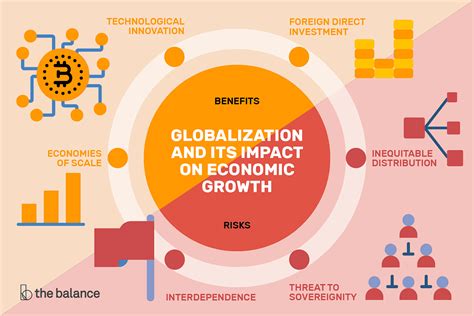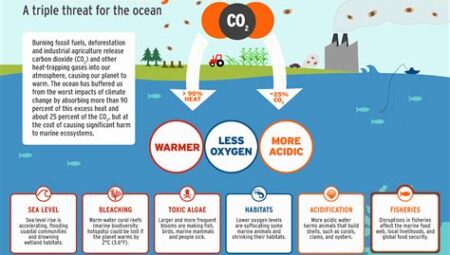In the era of globalization, the international landscape of relations and diplomacy has undergone significant transformations. The increased interconnectedness of nations has led to a strengthening of economic interdependence and the emergence of global governance structures. Multinational corporations now play a crucial role in shaping international relations, and technological advancements have revolutionized diplomatic practices. However, these changes have also presented new challenges to state sovereignty, as cultural diffusion and identity have become increasingly important in shaping diplomatic agendas. Transnational issues require greater cooperation among nations, leading to shifts in power dynamics. In this blog post, we will explore the myriad ways in which globalization has impacted international relations and diplomacy, and the implications it has for the future of global cooperation and governance. Let’s delve into the complexities and implications of these key subheadings to understand the multifaceted nature of this global phenomenon.
Table of Contents
Increased interconnectedness of nations
In today’s globalized world, the increased interconnectedness of nations has become more apparent than ever. The advancements in technology, transportation, and communication have made it easier for countries to engage in trade, exchange ideas, and collaborate on various global issues. This interconnectedness has led to an unprecedented level of interdependence among nations, where the actions of one country can have far-reaching effects on others.
One of the key drivers of this increased interconnectedness is the rise of multinational corporations. These companies operate across borders, establishing supply chains that span multiple countries and bringing people from different nations together to work towards a common goal. Their influence on the global economy and their ability to connect different markets has further solidified the interconnectedness of nations.
Furthermore, the emergence of global governance structures, such as the United Nations and the World Trade Organization, has played a significant role in promoting cooperation and interconnectedness among nations. These institutions provide a platform for countries to come together to address common challenges and promote peace, stability, and development on a global scale.
As a result of this increased interconnectedness, the world has become more interdependent, and the actions of one nation can have wide-ranging impacts on others. It is crucial for countries to recognize the interconnected nature of the world today and work together to address common challenges and build a more sustainable and harmonious global community.
Strengthening economic interdependence
In today’s globalized world, economic interdependence plays a crucial role in shaping international relations. Nations are becoming increasingly reliant on each other for trade, investment, and economic cooperation. This interconnectedness has led to a strengthening of economic interdependence among countries, as they recognize the mutual benefits of working together to achieve common goals.
With the rise of multinational corporations and the expansion of global supply chains, the economic interdependence between nations has only intensified. This has created a web of economic relationships that transcends national borders, making it essential for countries to collaborate and coordinate their economic policies.
Furthermore, the emergence of global governance structures, such as the World Trade Organization and international financial institutions, has further solidified the economic interdependence among nations. These institutions serve as platforms for countries to negotiate trade agreements, resolve disputes, and establish common rules and standards for economic interaction.
As the world becomes more interconnected, the strengthening of economic interdependence presents both opportunities and challenges for countries. While it fosters economic growth and development, it also requires nations to navigate complex economic relationships and address disparities in power and influence.
Multinational corporations and their role
As our world becomes increasingly interconnected, multinational corporations play a vital role in shaping the global economy. These corporations have the power to influence economic policies, trade agreements, and labor practices in countries around the world. With their vast resources and global reach, they have the ability to impact the lives of millions of people.
One of the key roles of multinational corporations is to facilitate the flow of goods, services, and capital across borders. They can invest in new markets, create jobs, and contribute to the development of infrastructure in countries where they operate. However, their influence can also lead to challenges such as labor exploitation, environmental degradation, and unequal distribution of wealth.
Furthermore, multinational corporations have the ability to shape public policy through their lobbying efforts and influence on regulatory bodies. This can lead to tensions between corporations and governments, as well as concerns about the democratic process being undermined by corporate interests.
In conclusion, the role of multinational corporations in the global economy is complex and multifaceted. While they have the potential to drive economic growth and innovation, they also have the power to exacerbate inequality and exploit natural resources. It is crucial for governments and civil society to hold these corporations accountable and ensure that their actions align with the values of sustainability, fairness, and social responsibility.
Emergence of global governance structures
In the 21st century, the emergence of global governance structures has become increasingly important in addressing the complex challenges facing the world. As nations become more interconnected and interdependent, it has become evident that traditional forms of governance are insufficient in addressing issues that transcend national borders. Global governance structures have therefore evolved to fill this gap, allowing for cooperation and coordination on a global scale.
One of the key drivers behind the emergence of global governance structures is the rise of multinational corporations and their influence on global economic and political systems. These corporations operate across multiple countries, often with greater resources and power than some individual nations. As a result, there is a growing need for global governance structures to regulate and hold these corporations accountable for their actions.
Furthermore, the increasing awareness of transnational issues such as climate change, global health crises, and terrorism has highlighted the need for a coordinated global response. Traditional forms of governance are limited in their ability to address these issues effectively, leading to the development of global governance structures that can facilitate collaboration and collective action.
As global governance structures continue to evolve, they also pose challenges to state sovereignty and traditional diplomatic practices. The shift towards more inclusive and collaborative decision-making processes may require nations to cede some of their autonomy in order to effectively address global challenges. This shift in power dynamics among nations is a crucial aspect of the emergence of global governance structures.
Changes in diplomatic practices
In the 21st century, diplomatic practices have undergone significant changes as a result of the increasing interconnectedness of nations. With the rise of globalization, the traditional modes of diplomacy have been forced to adapt to new challenges and opportunities. One major change has been the shift towards digital diplomacy, with the use of social media and online platforms becoming an integral part of diplomatic communication and outreach.
Furthermore, there has been a growing emphasis on transnational issues and cooperation in diplomatic practices. Diplomats are increasingly working together to address global challenges such as climate change, terrorism, and public health crises. This collaborative approach reflects the need for concerted international efforts to tackle issues that transcend national borders.
Another noteworthy change is the increasing role of non-state actors in diplomatic processes. While nation-states continue to play a central role in international relations, multinational corporations and their role in shaping diplomatic agendas cannot be overlooked. The influence of NGOs, think tanks, and other civil society organizations has also grown, contributing to a more diverse and complex diplomatic landscape.
Lastly, the emergence of global governance structures has led to changes in diplomatic practices, as diplomats are increasingly engaging with international organizations such as the United Nations, World Trade Organization, and International Monetary Fund. These institutions play a crucial role in shaping global policies and norms, and diplomats must navigate their complex decision-making processes.
Challenges to state sovereignty
Challenges to state sovereignty have become increasingly prevalent in today’s globalized world, where the influence of non-state actors and international organizations have grown significantly. One of the main challenges is the impact of globalization, which has led to the erosion of traditional notions of sovereignty as states become more interconnected and interdependent. This has been particularly evident in the areas of trade, finance, and environmental regulation, where states often have to cede some of their sovereignty to international organizations and agreements.
Another challenge to state sovereignty comes from the rise of transnational issues such as climate change, terrorism, and pandemics, which require coordinated responses across borders. States often find themselves unable to address these challenges alone, leading to the need for greater cooperation and coordination with other actors. Moreover, the emergence of global governance structures and multinational corporations further complicates the ability of states to exercise full sovereignty over their territories and populations.
Furthermore, the advancement of technology has made it easier for non-state actors to challenge state sovereignty, as seen in the rise of cyber-attacks and the spread of misinformation and propaganda. These new forms of warfare and influence pose significant challenges for states in maintaining control and security within their borders.
In conclusion, challenges to state sovereignty are a complex and evolving aspect of modern international relations. Globalization, transnational issues, global governance structures, and technological advancements all contribute to the growing difficulty for states to fully exercise their sovereignty. Addressing these challenges will require a rethinking of traditional diplomatic practices and the development of new strategies for managing interdependence and non-state actor influence.
Cultural diffusion and identity
Cultural diffusion and identity are two interconnected concepts that have been significantly influenced by the increased interconnectedness of nations in today’s globalized world. As different cultures come into contact with one another through various means such as trade, migration, and communication, there is a blending and sharing of cultural elements, leading to cultural diffusion.
This cultural diffusion has a profound impact on the identity of individuals and communities. As people are exposed to new ideas, beliefs, and practices from other cultures, they may incorporate these elements into their own cultural identity, resulting in a more diverse and heterogeneous society.
Furthermore, cultural diffusion can also lead to the preservation and revitalization of traditional cultural practices and customs. As cultures interact and influence each other, there is a process of adaptation and reinterpretation of traditional elements, contributing to the evolution of cultural identities.
However, the concept of cultural diffusion and its impact on identity is not without its challenges. The potential for cultural homogenization and the loss of unique cultural heritage are concerns that arise in the face of rapid cultural exchange. It is important to strike a balance between embracing cultural diversity and preserving cultural authenticity.
Technological advancements in diplomacy
As the world becomes increasingly interconnected, technological advancements have greatly impacted the field of diplomacy. The use of digital communication tools such as emails, video conferencing, and social media has revolutionized the way diplomats interact and negotiate with their counterparts in other countries. This has not only improved the speed and efficiency of communication but has also allowed for greater accessibility and inclusivity in diplomatic processes.
Furthermore, the development of artificial intelligence and big data analytics has provided diplomats with new tools for making informed decisions and conducting diplomatic research. These technologies have the potential to enhance the predictive and analytical capabilities of diplomats, enabling them to better understand global trends and anticipate potential conflicts or crises.
In addition, the use of cybersecurity measures has become crucial in diplomatic practices, as the threat of cyber attacks and espionage continues to grow. Diplomatic missions and government agencies must invest in robust cybersecurity infrastructure to protect sensitive information and communication channels from unauthorized access.
Overall, the adoption of new technological innovations has significantly transformed the landscape of diplomacy, offering new opportunities as well as challenges for diplomats as they navigate the complexities of the modern globalized world.
Transnational issues and cooperation
The increased interconnectedness of nations has led to the emergence of transnational issues that require cooperation among countries. These issues, such as climate change, terrorism, and cyber security, do not respect national borders and require coordinated efforts to address. In today’s globalized world, no single country can effectively tackle these transnational issues on its own.
Strengthening economic interdependence has also given rise to transnational issues that require cooperation. Issues such as trade imbalances, currency fluctuations, and global economic crises necessitate collaboration among nations in order to find sustainable solutions. The interconnectedness of the global economy means that the actions of one country can have far-reaching impacts on others, emphasizing the need for transnational cooperation.
Multinational corporations play a significant role in transnational issues, as their operations often span multiple countries. Issues related to labor rights, environmental impact, and corporate responsibility require cooperation between governments and multinational corporations to ensure that global standards and regulations are upheld. The influence of multinational corporations on transnational issues highlights the importance of cooperation between different stakeholders.
The emergence of global governance structures, such as the United Nations and international treaties, has provided a platform for countries to collaborate on transnational issues. These governance structures serve as forums for dialogue and decision-making, allowing countries to work together to address common challenges. The cooperation facilitated by global governance structures is essential for finding effective and sustainable solutions to transnational issues.
Shifts in power dynamics among nations
The shifts in power dynamics among nations have been a key focal point of international relations for decades. As countries rise and fall in terms of influence, the balance of power in the global arena constantly evolves.
One of the most significant shifts in power dynamics among nations in recent years has been the rise of China as a global superpower. With its rapid economic growth and expanding military capabilities, China has emerged as a major player in international politics, challenging the traditional dominance of the United States.
Another important factor in the shifts in power dynamics among nations is the decline of traditional powers such as the United Kingdom and France, and the rise of emerging economies like India and Brazil. These shifts have led to a reconfiguration of global power structures and a more multipolar world order.
Furthermore, technological advancements have also played a significant role in the shifts in power dynamics among nations. The rise of digital diplomacy and the increasing influence of social media have given smaller and less powerful nations a platform to exert influence and shape global discourse in ways that were not possible before.





